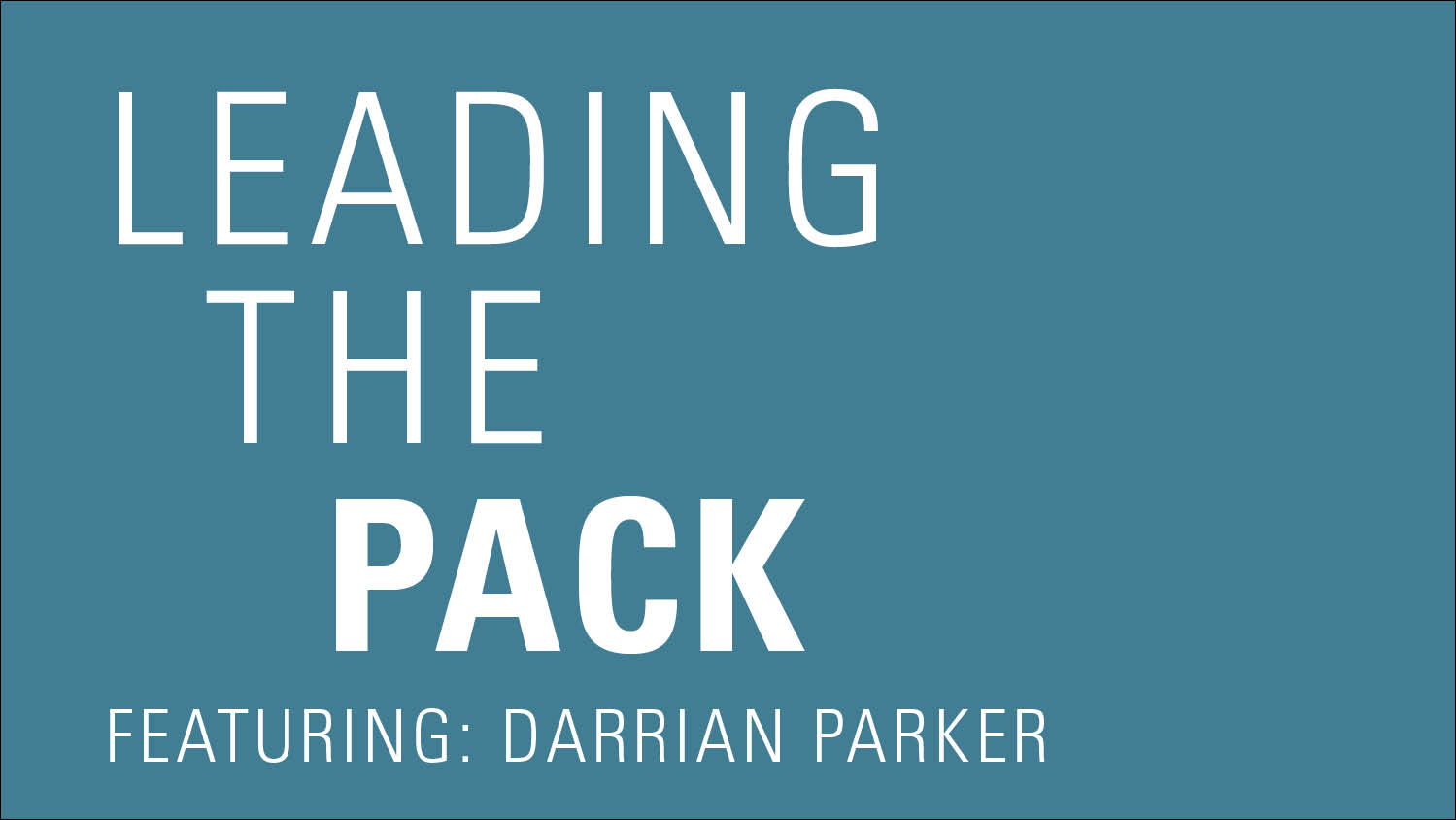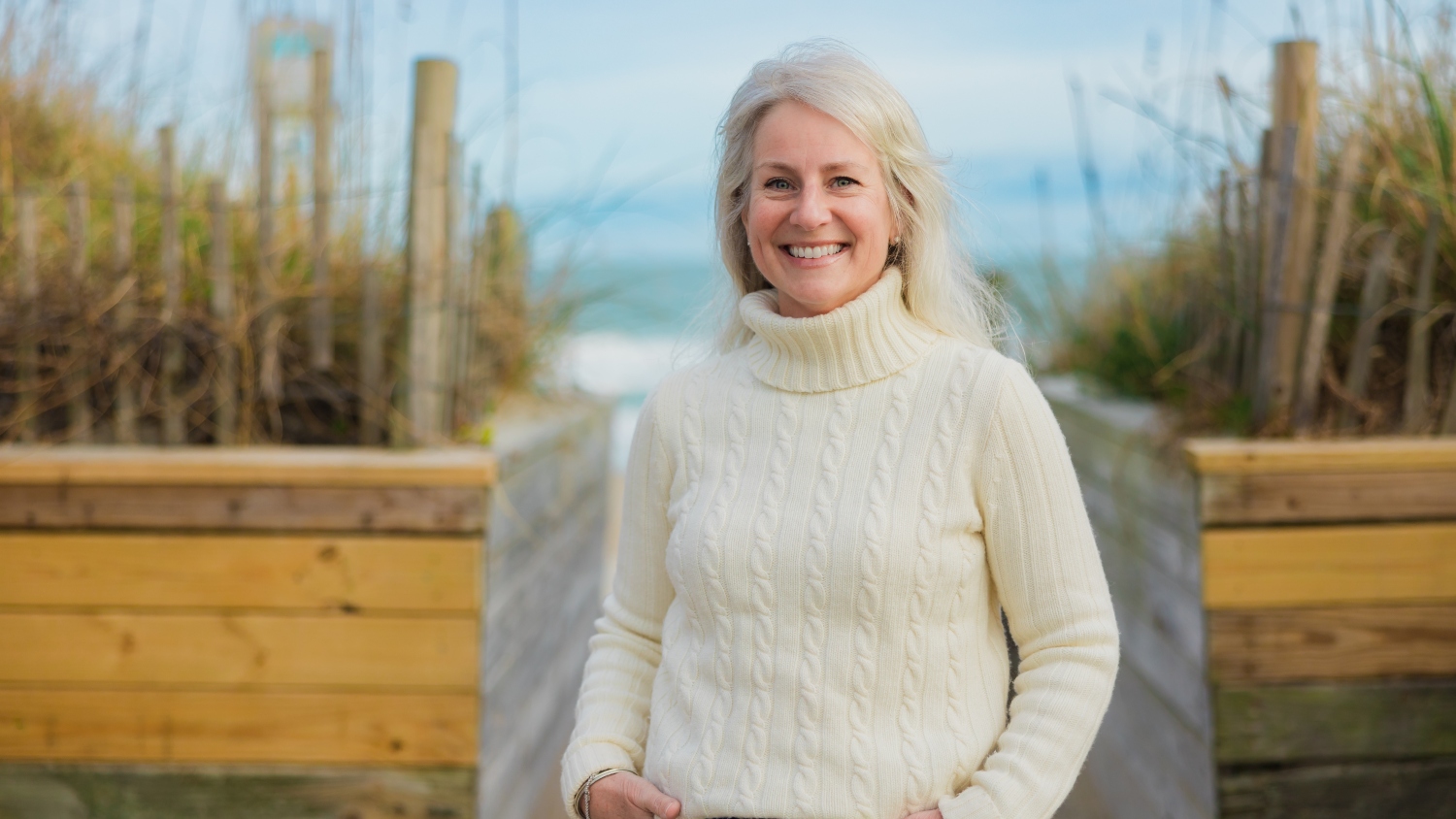Leading the Pack: Darrian Parker

Darrian Parker is a 2019 Jenkins MBA alumnus. Parker, a Global Solutions Engineer at NetApp, says that one key element of choosing NC State for his MBA was the institution’s full-time MBA ranking as well as the offer of a graduate assistantship to help decrease the cost of tuition. The full-time MBA curriculum is rooted in real-world experiences and practical skills that helps students grow their career within a technology-driven, global marketplace. Students in the full-time program can complete the program in as little as 21 months.
In the following Q & A, Parker goes into more detail about why he decided earning an MBA was the right fit for him, advice for prospective students, and the highlights of his student experience during his time at NC State.

Q: Why did you choose the NC State Jenkins MBA program for your graduate education?
A: There were two main drivers that led to me choosing NC State to attain my MBA. One being the institution’s full-time MBA ranking as compared to other programs along the east coast, the other being the graduate assistantships offered by the program, to help decrease the cost of tuition. My goal was to go to a school that ranked near the Top 50 full-time programs in the United States, where I could also – hopefully – attain a graduate assistantship award of full-tuition. NC State, along with a few other schools fit this bill. Ultimately, I ended up having a great interview experience and ended being awarded a graduate assistantship. Being that at this time NC State checked off all boxes for me, attending the school was a no-brainer.
Q: How did your experience in the program contribute to your professional achievements and successes?
A: Being in the MBA program and being exposed to marketing, investing/personal finance and entrepreneurship, has made me think more outside the box in terms of what my career could and should look like. Before enrolling in the MBA program, I was primarily leveraging my undergraduate engineering degree to speak with local manufacturing companies. The MBA opened the door for me to speak with larger more recognized companies such as Cisco’s, 3M’s, and Google’s of the world. Without this exposure, it is tough to say whether I would be in the position I am currently in at NetApp. I was told about NetApp through NC State’s MBA recruiting process and am very fortunate to have been at the right place at the right time for this opportunity. I am currently, in a customer-facing technical consultant role and what I learned through the MBA program about business, has enabled me to provide more valuable insights to customers about why investing in new technologies is important to their overall strategy and goals. Outside of my career at NetApp, the MBA program has made me more thoughtful regarding personal finance and personal investing. It has also given me the confidence to think and try out ways I could potentially start my own business or work independently.
Q: What advice would you give for prospective and current students who are interested in your industry/profession?
A: The advice I’d give to students interested in a career in technology, is to go in with the mindset that you will always be learning, and you will never have all the answers. It might be cliché, but technology changes constantly and it is very easy to get behind if you’re not constantly learning. It may sometimes feel like you do not know much when you’re working in technology, just due to the sheer number of things there are to learn. However, being comfortable not knowing something and being eager to figure things out regardless is paramount in being successful in this industry.
Q: Is there anything you would have done differently looking back at your experience?
A: The only thing I could think of that I would change looking back at my MBA experience is continuing the entrepreneurship track provided by the program, even past the scheduled course work. During my time in the TEC/Entrepreneurship program, the curriculum involved pairing MBA students with Doctoral and Master students in other programs and giving them a technology to attempt to bring to market and commercialize. It is a great learning experience I encourage anyone to participate in, who really want to test out everything they’re learning in the MBA program to that point. At the end of the TEC/Entrepreneurship program there is usually an opportunity to continue working with the technology past the planned course, which my team and I were fortunate to hear we could do this if we chose. I opted not to continue, as I was working part-time already at NetApp while finishing the MBA program and wanted to ensure I was not burning myself out from a workload perspective. If I could go back, I would change this decision. The opportunity to work with students from such diverse backgrounds and skillsets and bring something to market, does not come around often.
Q: Could you give a brief explanation of your current line of work and how COVID-19 has impacted it? As well as how the MBA has helped prepare you navigate during these times?
A: I am currently a Global Solutions Engineers, serving as a technical sales specialist for the financial industry. This involves educating customers on what products in our portfolio best meet their technology and business needs. I am fortunate to say COVID-19 hasn’t impacted my day to day too much. The biggest change is there are little to no in-person customer meetings taking place, so all interactions are over a Zoom or Webex meeting. I will say that through the MBA program you learn to handle sudden and rapid change, as anyone who has gone through the first of four semesters of the full-time program will tell you. That said, adapting to what is now the “new normal” has been manageable given the industry I’m in and the extent to which we’ve used technology to communicate even before the COVID-19 pandemic. I’m also an independent insurance adjuster, a trade I picked up in my spare time, which involves me inspecting homes for damages. The only change I’ve seen there is the guideline to not do any in-home inspections, which I’m fine with and I’m sure the owners of these homes are also.


